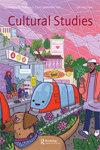神奇科学的暴政和大众的崩溃:日本面具规范中的恐惧和现代性
IF 1.2
3区 社会学
Q1 ANTHROPOLOGY
引用次数: 0
摘要
摘要本文结合日本社会中与医学上理想的口罩规范不同的被推翻的口罩规范的实践情况,探讨了科学的暴政和大众对此的反应。科学所假定的人类模型常常倾向于局限于一个非常狭隘的现代公民模型,或者一个理性的、理想的、有足够信息来做决定的人类模型。这种对人类和社会的形而上的理解,并不认为群众不会接受。因此,科学别无选择,只能用数学推导出的恐惧来控制大众。从某种意义上说,科学总是具有专制和神奇的特征,恐惧是实现专家的科学期望所必需的。为了煽动恐惧,技术不仅应该是科学的,而且应该在使用它的社会中具有象征意义(仪式)。然而,一旦恐惧成为现实,大众非但没有被恐惧所吓倒,反而开始怀疑专家的科学解释。结果,科学的暴政开始崩溃。正是在被认为离科学最远的大众中,科学才有机会被相对化。关键词:covid -19 technology cracymaskriskfearmass披露声明作者未报告潜在利益冲突。作者简介:HaneJiro Hane,出生于日本横滨,现任东京明治大学政治经济学院副教授。2010年毕业于东京一桥大学研究生院,获博士学位。主要研究方向为中国近代史和当代中国研究。主要作品有《物质视角下的中国》(东京:Seidosha, 2020)。本文章由计算机程序翻译,如有差异,请以英文原文为准。
The tyranny of magicalized science and its collapse by the masses: fear and modernity in the Japanese mask norm
ABSTRACTThis article discusses the tyranny of science and the masses’ reaction to it, considering the situation in which the overturned mask norm, which is different from the medically desirable mask norm, has been practiced in Japanese society. The model of the human being that science assumes is frequently inclined to be limited to a very narrow model of the modern citizen or a rational, ideal human being with sufficient information to make decisions. Such a metaphysical understanding of human beings and society does not assume that the masses will not accept it. As a result, science has no choice but to use mathematically derived fear to control the masses. Science will always have a tyrannical and magical character in the sense that fear is necessary for the realization of the scientific expectations of experts. To incite fear, technology should be not only scientific but also symbolic (ritualistic) in the society in which it is used. However, once the fear becomes a reality, the masses, instead of being increasingly frightened by it, begin to doubt the scientific explanations of the experts. As a result, the tyranny of science starts to collapse. It is in the masses, who are perceived as the furthest removed from science, that the opportunity exists for science to be relativized.KEYWORDS: COVID-19technocracymaskriskfearmasses Disclosure statementNo potential conflict of interest was reported by the author(s).Additional informationNotes on contributorsJiro HaneJiro Hane, born in Yokohama, Japan, is an associate professor in the school of Political Science and Economics, Meiji University, Tokyo. In 2010, he graduated from the Graduate School of Hitotsubashi University, Tokyo, with a Ph.D. His research focuses specifically on modern Chinese history and contemporary Chinese studies. Some of major works include “Butteki Chugoku-ron (China from a Material Perspective)” (Tokyo: Seidosha, 2020).
求助全文
通过发布文献求助,成功后即可免费获取论文全文。
去求助
来源期刊

Cultural Studies
Multiple-
CiteScore
3.50
自引率
6.70%
发文量
0
期刊介绍:
Cultural Studies is an international journal which explores the relation between cultural practices, everyday life, material, economic, political, geographical and historical contexts. It fosters more open analytic, critical and political conversations by encouraging people to push the dialogue into fresh, uncharted territory. It also aims to intervene in the processes by which the existing techniques, institutions and structures of power are reproduced, resisted and transformed. Cultural Studies understands the term "culture" inclusively rather than exclusively, and publishes essays which encourage significant intellectual and political experimentation, intervention and dialogue.
 求助内容:
求助内容: 应助结果提醒方式:
应助结果提醒方式:


